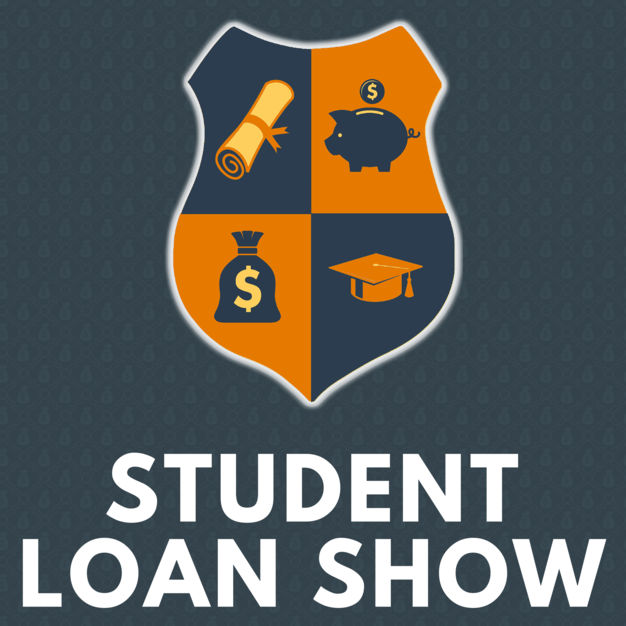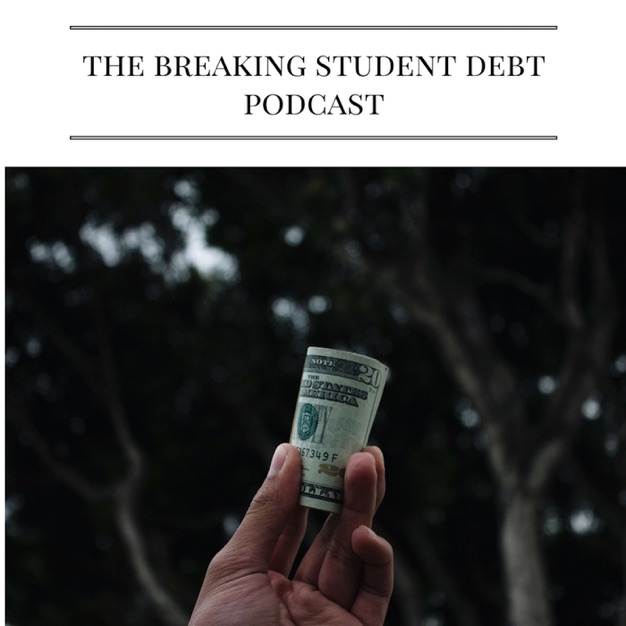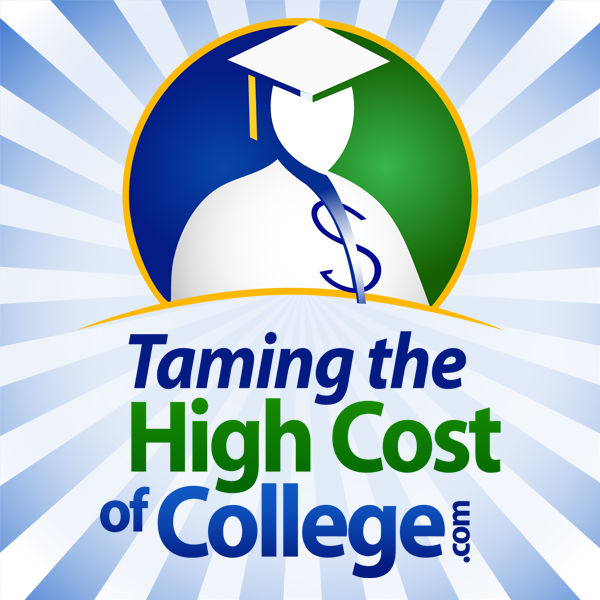
Student Loan Show
Jay S. Fleischman
The student loan system is designed to confuse you. Layers of regulations, dozens of repayment options, and a series of overlapping laws make it nearly impossible to protect yourself and your financial future. Jay Fleischman, an attorney with over 24 years of experience helping people with student loans, helps guide you to student loan success in a way that's easy to understand. Along the way, you'll also hear about budgeting, personal finance, debt, credit and making choices to help you meet - and exceed - your goals. Because you can't win the game unless you know the rules.
- 12 minutes 9 secondsGetting Your Federal Student Loan Promissory Note
Does the Dept of Education have to provide copies of the Promissory Notes? If not, how can I confirm the debt? What if they don’t have all the pages?
You’re entitled to copies of your student loan promissory notes. Still, the Department of Education isn’t the only place to get them. In fact, there are 6 ways to find information about your federal student loans.
How to get your federal student loan documents
The Department of Education has copies of all of your master promissory notes you signed so you could get your federal student loans. You can get a copy of your Master Promissory Notes by going to studentloans.gov and entering your FSA ID. Click on “Completed Master Promissory Notes” under the menu bar heading that says “My Loan Documents.” The completed Master Promissory Notes will appear, and you can download them directly.
If what you’re really looking for is a copy of your entire federal student loan file – not just the promissory note but also any other information the Department of Education has for you – take a look at the Freedom of Information Act.
The Freedom of Information Act allows you to get records and information from the Federal government so long as it doesn’t fall into one of the exemptions related to privacy or national security. Because your student loan information doesn’t fall into any of these exemptions, you should be fine.
At this point, you should be able to confirm the fact that the debt is yours through either StudentLoans.gov or using a Freedom of Information Act request. However, there are other ways of confirming the debt.
The third way would be to login to the National Student Loan Data System or NSLDS. NSLDS is the US Department of Education’s central database for student aid, and it lets you see everything about your federal loans and grants. It’s like a credit report for your federal student loans, and it should give you a pretty good sense of what’s outstanding.
The fourth way to get your loan information is by getting in touch with your school. Your school may be able to give you information on your cost of attendance and how charges were paid.
Your loan servicer, the company that sends you bills every month, may be able to provide you with documents about your federal student loans. The servicer’s job is to administer the loan so long as it’s not in default. The servicer would have information about the accounting of your loan, how charges were assessed, payments received, forbearances and deferments, and other account-related events.
If your loan is in default, call the Default Resolution Group of the Department of Education at 800-621-3115. Default resolution Group will tell you which servicer was handling your loans when they were in good standing.
Borrowers of defaulted loans may demand the loan information from the debt collector. You may not get it, but it’s a possibility.
What if the Department of Education doesn’t have a complete copy of the Promissory Note?
If you’re being sued by the government for an unpaid loan, you can demand copies of your documents during pre-trial discovery. If the government can’t produce the complete note, they’ll likely argue that you received the benefit of the loan funds un tuition was paid. If you can prove that you or somebody else paid the tuition and fees, that would defeat the Department of Education’s argument. Without such proof, however, this argument may not go far.
If the Department of Education hasn’t filed a lawsuit and they’re using an administrative collection remedy, you can demand an administrative hearing to request the loan information. As in litigation, you should be prepared to prove that you or somebody else paid the tuition and fees.
Avoid the temptation
It’s tempting to demand a copy of the promissory note, but refusing to pay the federal student loan is usually a bad idea in the absence of a valid concern.
There are administrative ways to get a federal student loan discharged if you’ve been the victim of identity theft or some other unauthorized action. If those requests are denied, then you might need to file a lawsuit against the Department of Education.
The post Getting Your Federal Student Loan Promissory Note appeared first on Student Loan Podcast.
14 January 2020, 7:10 am - 25 minutes 24 secondsStudent Loan Debt Validation - Legit, Scam, or Something Else?
If they don’t give you a copy of the note, does the student loan go away?
Demanding a copy of the student loan promissory note – is it the newest scam, the oldest trick in the book, or something else entirely?
Student loan counselors, negotiators and other so-called “debt relief services” tell you they can wipe out your student loan by demanding proof that the collector has proof of ownership. For borrowers, this sounds like a miracle – and who wouldn’t spend a few thousand dollars on something like this that could change your life forever?
If this is such an effective way to solve a student loan problem, why aren’t more people talking about it?
The post Student Loan Debt Validation – Legit, Scam, or Something Else? appeared first on Student Loan Podcast.
26 November 2019, 8:00 am - 23 minutes 39 secondsAdministrative Wage Garnishments and Hardship Hearings [Q and A]
Chelsea has a question about her defaulted student loans
I was in default and garnishment of wages was put in place. I am now in rehabilitation with an agreement and making payments. I requested hardship to end garnishment, filed the paperwork for it and was told it would take 30-60 days for hardship decision. It is now day 90+ with no decision and I am in a bad financial bind due to the garnishment. The request has been escalated to region twice due to number of days and I was told decision could come any day but this is day 90+. Is there anything else I can do?Administrative Wage Garnishment – There Are Ways to Ease the Pain
On today’s show we tackle Chelsea’s question and help her better understand her options. Student loan default doesn’t need to be a financial death sentence – you’ve got choices, but you need to be careful to sure that you’re making the best one for your situation.
Some of what you’ll hear today includes:
-
When requesting a hearing will stop an administrative wage garnishment – and when it won’t
-
The meaning of financial hardship, and what you’ll need to prove when using this argument as a shield against wage garnishment
-
Why the government doesn’t always need to grant a hearing on a claim of financial hardship
-
How to get a rehabilitation agreement with the lowest monthly payment
The post How (and when) to stop an Administrative Wage Garnishment with a hardship hearing appeared first on Student Loan Podcast.
19 August 2019, 8:06 pm -
- 15 minutes 15 seconds1022 Days in the World of Student Loans
In the world of student loans, a lot can happen in a very short period of time.
In the past 1,022 days we’ve seen a new President and Secretary of Education who seem intent on dismantling student loan protections as quickly as possible.
Colleges have failed.
Regulations have been put on hold, reinstated by court order, and subsequently ignored.
A Presidential campaign has taken shape based largely on the question of solving the student loan crisis.
Has the entire world gone crazy? Is the student loan system broken forever?
Fear not – I’ve got your back on this one.
Have a Question About Your Student Loans?
I’ll be answering YOUR student loan questions on the show. Just head over to the contact page!
The post 1022 Days in the World of Student Loans appeared first on Student Loan Podcast.
6 August 2019, 3:05 pm - 33 minutes 4 secondsStudent Loan Repayment Strategies for Doctors
Welcome to the new season of the show! This episode was recorded live at FinCon 18 with Joshua R.I. Cohen, a fellow student loan lawyer.






The post Student Loan Repayment Strategies for Doctors appeared first on Student Loan Podcast.
9 October 2018, 7:10 am - 23 minutes 38 secondsStudent Loan Strategies for People With ADHD
October is ADHD Awareness Month and the 2016 theme is “Knowing is Better.” So we’re going to talk about knowing the best way to keep your student loans under control using accommodations to maximize your chances for success.
ADHD is a brain syndrome that has impairs the functioning of what are called “executive functioning skills.” Those include attention, concentration, memory, motivation and effort, learning from mistakes, impulsivity, hyperactivity, organization, and social skills.
Two-thirds of children with ADHD continue to grapple with the condition throughout adulthood. Of the 6.4 million children diagnosed with ADHD, nearly 4 1/2 million will remain part of their lives forever.
ADHD also affects about nine million adults in the United States. Adults with ADHD have a limited ability to stay on task at work, have difficulty concentrating on what others were saying, following through on tasks, completing projects, or maintaining organization at home and at work.
They are less able to get along with others at work and in social situations, suffer from relationship problems, and often feel like failures. They are more prone to depression, anxiety disorders, drug and alcohol addiction, divorce and suicide.
When it comes to money, adults with ADHD are more likely to file for bankruptcy, fall into foreclosure, have greater credit card debt, and go through more prolonged periods of unemployment.On today’s show, I’ll go through my top strategies to help you successfully manage your student loans if you have ADHD.
Self-Screener for ADHD
Many adults have been living with Attention-Deficit/Hyperactivity Disorder and don’t recognize it because its symptoms are often mistaken for a stressful life.
The World Health Organization developed a self-screener to be used as a starting point to help you recognize the signs/symptoms of Adult ADHD. you can find a link to that screener on our site as well.
It is not meant to replace consultation with a trained healthcare professional. An accurate diagnosis can only be made through a clinical evaluation. Regardless of the questionnaire results, if you have concerns about diagnosis and treatment of Adult ADHD, please discuss your concerns with your physician.
Resources
Adult ADHD Self-Report Scale (ASRS-v1.1) Symptom Checklist Instructions
CHADD: The National Resource on ADHD
American Academy of Child & Adolescent Psychiatry – ADHD Resource Center
National Resource Center on ADHD






The post How to Manage Your Student Loans When You Have ADHD appeared first on Student Loan Podcast.
18 October 2016, 1:10 pm - 37 minutes 12 secondsPrivate Student Loans Won’t Work With You – Now What?
Kiarra has three student loans – one is private and two are federal. She’s had the loans for nearly a decade and, though she started making payments, she went into default because her income didn’t cover the payments. She filed for bankruptcy and now she’s got to start making payments on the loans again.
She began her federal student loan consolidation online at www.StudentLoans.gov and worries that she may not be approved. But her biggest concern is the adjustable rate private loan, held by EDMC Discount.
With no college degree and no financial ability to go back to complete her education, Kiarra is depressed and confused about her options.
Listen in to hear my advice on how to handle her private student loan payments.
Are Student Loan Defaults Going Down?
According to recent reports, student loan defaults are on the decline. But look a little deeper and you’ll see that the default rate is actually higher now than it was last year.
About 593,000 former college students out of 5.2 million total borrowers defaulted on their federal debt as of Sept. 30, 2015, according to the US Department of Education. Default rates at public and for-profit colleges dipped, while private, nonprofit schools experienced a slight increase.
Data analyzed by researchers at the Federal Reserve Bank of New York and the Treasury Department suggest that student loan defaults within the first three years of repayment account for only about half the total number of eventual defaults. In fact, more than twice as many borrowers who entered repayment in 2009 had defaulted by their fifth year than by their third year, according to research published last year by the Brookings Institution.
Resources
- Student Loan Default Rates Continue To Drop (Fox Business)
- Student Loan Default Rates Decline, But A Record Number Of Borrowers Are In Default (Consumerist)
- Official Cohort Default Rates for Schools (US Department of Education)






The post Private Student Loans Won’t Work With You – Now What? appeared first on Student Loan Podcast.
11 October 2016, 8:52 am - 23 minutes 14 secondsAdam Minsky and Jay Fleischman - A Live Student Loan Q&A
Jay Fleischman is joined by Adam Minsky, a fellow student loan lawyer based in Boston. During this episode, recorded live at FinCon16 in San Diego, we talk about:
- Why only 40% of federal student loan borrowers are in an active repayment plan;
- The reason why most people student loan borrowers rely on forbearance rather than repayment through one of the income-dependent repayment plans;
- Understanding what kind of student loans you have;
- The role of the servicer – and who else may be controlling your federal student loan;
- Why servicers make so many errors;
- The heartbreaking conversation we have with people trying for Public Service Loan Forgiveness; and
- Why you should submit an Employment Certification Form – and the best time to do it.
Resources
- Law Office of Adam Minsky
- Student loan servicing: Analysis of public input and recommendations for reform (CFPB Report – September 2015)
- Public Service Loan Forgiveness (PSLF): Employment Certification Form






The post Adam Minsky and Jay Fleischman Live at FinCon16 appeared first on Student Loan Podcast.
4 October 2016, 11:00 am - 40 minutes 10 secondsSLS056: Talking Student Loans with His and Her Money Show
Our next new show will be released on July 12, 2016. To keep things moving, I’ll be highlighting some of the interviews I’ve done on other podcasts. It’s a way of introducing you to different shows from other interesting and smart folks – I hope you enjoy the change of pace.
For today, I present to you The His & Her Money Show with Talaat and Tai McNeeley. They’re a husband-and-wife team who reflect so many of the people I meet every day. When they got married:
- One had debt and the other did not.
- One made poor money decisions while the other made better money decisions.
- One had a low credit score and the other had a stellar credit score.
They asked one another some difficult questions and climbed their way out of debt not once, but TWICE . . . TOGETHER. It was not always pretty and glamorous, but they turned it around by being honest and working really hard.
Talaat and Tai are some of the nicest people I’ve met in a long time, and I was thrilled when they asked me to be on their show to talk about ways to tackle your student loans.
What We Talked About
- The current state of the student loan crisis in America.
- The role that organization plays in order to pay off your student loans.
- Strategies to pay off your student loans effectively and quickly.
- Pros and cons of refinancing your student loans.
- Whether or not student loan consolidation is worth your while.
Resources Mentioned During the Show







6 Days to Student Loan Success
One Tactic Per Day, Delivered By Email
Enter Your Email Address To Get It FREE
The post SLS056: Talking Student Loans with His and Her Money Show appeared first on Student Loan Podcast.
7 June 2016, 5:44 pm - 17 minutes 42 secondsSLS055: Is REPAYE a Better Fit for Public Service Loan Forgiveness?
What do you do when you’re 3 years into income-based repayment and realize there might be a better way to pay off your student loan debts?
Most people would jump at it, but that wouldn’t be the best move. Especially when it comes to Revised Pay-As-You-Earn, the federal government’s newest income-dependent repayment plan for Direct Loans.
Revised Pay-As-You-Earn, or REPAYE, comes with some great benefits – a lower monthly payment, better interest subsidies, and often a shorter time to loan forgiveness. But with those benefits come burdens, such as problems that may arise for certain married couples.
The question of whether to remain in Income-Based Repayment or switch to REPAYE is made all the more difficult when a borrower is also working to pay down private student loan debts while employed in a position that will ultimately lead to Public Service Loan Forgiveness.
On today’s episode we meet Leo, who asks the following question:
Currently, I owe just over $72,000 in Federal Student Loans, plus about $26,000 in private student loans. Right now all of my efforts are going into paying off my private student loans as I am enrolled in Public Service Loan Forgiveness (PSLF) at about the 3-year mark (7 years left of qualifying repayment). I just recertified my income and my payment is almost doubling to $300 on Income-Based Repayment (IBR). Since Pay-As-You-Earn (PAYE) is not an option due to loan disbursement date, if I switch to Revised Pay-As-You-Earn (REPAYE), I can lower my payment to $200 as it requires 10% of income instead of the old 15%.
The other great advantage to switching is the interest would be subsidized, right now I am accruing interest faster than I am making payments.
My hesitation comes from the unforeseeable future and the stipulations that come with REPAYE. The biggest issue is if I get married, I lose the option to file taxes separately and only pay based on my salary. Right now, I have no plans on getting hitched but I am already in Public Service because of my loans and don’t want PSLF to dictate my marital status also. Other drawbacks that I consider but worry much less about is the lack of cap to REPAYE dollar amount and the fact that if you switch to another plan, all of that interest is put back in retroactively.
While I would enjoy a lower payment, the real advantage would be faster payment of my private student loans and not have a higher balance due to unpaid interest standing on my credit report for the next 7 years. I am pretty sure my question answers itself until you put the marriage stipulation in there. Just wondering what your thoughts are on this; do I keep IBR or switch to REPAYE? Any insight you could provide is greatly appreciated.
Listen to the episode and find out what I’ve got to say to Leo about his decision – and why he should take the leap right now.






6 Days to Student Loan Success
One Tactic Per Day, Delivered By Email
Enter Your Email Address To Get It FREEResources For This Episode
- Basics of Income-Based Repayment
- Public Service Loan Forgiveness
- Revised Pay-As-You-Earn
- Financial Rock Star Podcast
The post SLS055: Is REPAYE a Better Fit for Public Service Loan Forgiveness? appeared first on Student Loan Podcast.
17 May 2016, 10:03 am - More Episodes? Get the App
Your feedback is valuable to us. Should you encounter any bugs, glitches, lack of functionality or other problems, please email us on [email protected] or join Moon.FM Telegram Group where you can talk directly to the dev team who are happy to answer any queries.
 Midday Money Show
Midday Money Show
 Follow Me out of Debt | Get out of debt and get into prosperity!
Follow Me out of Debt | Get out of debt and get into prosperity!
 Breaking Student Debt Podcast
Breaking Student Debt Podcast
 Student Loan Planner
Student Loan Planner
 Taming the High Cost of College! : Financial Aid | FAFSA | Student Loans | Scholarships | Tax | Saving | Investing | Grants
Taming the High Cost of College! : Financial Aid | FAFSA | Student Loans | Scholarships | Tax | Saving | Investing | Grants